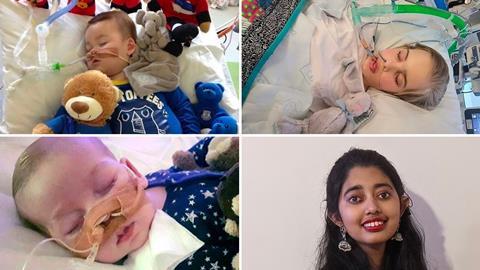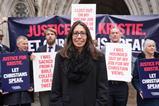Withdrawing medical treatment against the wishes of patients and families, is a sign that society does not value all lives equally, says Tim Dieppe. Human life is sacred and Christians must fight to protect it

Alfie Evans, Archie Battersbee, and Charlie Guard are household names.
The subject of high-profile court cases, all three children died after the NHS withdrew critical care despite objections from their families.
More recently, the case of Sudiksha Thirumalesh hit the headlines, known simply as “ST” due to an extremely harsh ‘transparency order’ which prevented her name from being made public until after her death.
Yet another case, which is current as I write, is that of Indi Gregory – a seven-month-old baby whose doctors are applying to withdraw her life support.
These cases stir the emotions and raise all sorts of issues and questions. People ask: “Why is the family resisting court proceedings brought by the NHS?” and “Surely the doctors must know best?”
At all costs
We at Christian Concern do not believe that life should be preserved at all costs. We strongly support palliative care for those at the end of life and agree that people should be allowed to decline medical treatment if they so wish.
Should doctors be able to decide not to continue with life sustaining treatment against your will?
What we are concerned about is society determining that some lives are not worth living. This is a dangerous line to cross in any culture. Such a society may not bother to treat all people or will seek to withdraw existing treatments. There is a very slippery slope here, too, in that it becomes all too easy to expand the ‘types’ of people whose lives are not worth preserving.
Every country that has legalised euthanasia so far has fallen down this slippery slope. The initial criteria are very strict and yet, before long people who are very far from having terminal conditions (and even children) are being offered euthanasia. This type of thinking is prevalent in our culture, too. Many mothers pregnant with babies with an abnormality of some kind are advised by the NHS to have an abortion – sometimes multiple times over.
A fair trial
In these end-of-life cases there is a similar mentality. Doctors have decided that this life is not worth living so they seek court permission to withdraw treatment. Quite often this happens very quickly, with parents given very little notice of court proceedings. But why the rush? Parents are effectively prohibited from seeking alternative treatment – even if this at no cost to the NHS. They are being denied permission to seek independent medical experts to give evidence to the court. In some cases, they are forbidden to talk about what is happening - even to close relatives - on pain of a possible prison sentence. This is what happened with Sudiksha Thirumalesh, or “ST” as she became known in the press.
What Sudiksha’s case revealed is that doctors are prepared to go to court against the clearly expressed wishes of the patient herself. Unusually for such cases, Sudiksha was fully conscious and, at 19 years old, of age. Two psychiatrists provided expert witness reports to the court that she was mentally competent. In spite of this, doctors argued that, since she disagreed with their proposed course of action, she was not really mentally competent. Doctors sought to withdraw life-sustaining treatment against her will, arguing that she was “actively dying”.
Sadly, Sudiksha died before all this was fully resolved, but her case could set an alarming precedent. Should doctors be able to decide not to continue with life sustaining treatment against your will? What does it mean for doctors to decide that you are “actively dying”? Can expert witness testimony about your mental competence be dismissed if you disagree with your proposed treatment? And should the courts be able to decide that neither you, nor your family, can tell anyone about what is happening on pain of a prison sentence?
Calls for change
Christian Concern responded to the Nuffield Council of Bioethics review into disagreements in the care of critically ill children. We called for common sense changes to the process, such as mandatory mediation between doctors and parents where there are disagreements. We also recommended mandatory consideration and approval by the Clinical Ethics Committee before any court application for the removal of life-sustaining treatment. We called for adequate notice to be given to families of court proceedings, enabling them to instruct lawyers and respond to legal arguments, and we argued against court secrecy orders unless the family want that.
We also called for the right to instruct independent medical experts to give evidence to the court and the right to seek an alternative provider of treatment, particularly where this is offered at no cost to the NHS. In the case of Archie Battersbee, the parents were refused permission to take him to a hospice for end-of-life care. In the case of Alfie Evans, the parents were refused permission to accept an offer of care from Italy after the Italian government granted citizenship to Alfie. An air ambulance was waiting outside the hospital ready to take Alfie to hospital in Italy at no cost to the NHS, yet this offer was refused by the court.
It has been said that “the measure of a society is how it treats its weakest members”. As Christians, we believe that human life is sacred and that all people should be treated as immensely valuable. We seek to protect the most vulnerable in society as our culture starts to disregard the sanctity of human life and argues that some lives are not worth living. Vital principles are at stake.





































No comments yet